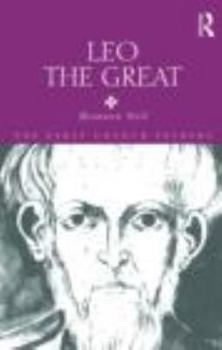Leo the Great
Pope Leo I's theological and political influence in his own time (440-461) and beyond far outweighs the amount of attention he has received in recent scholarship. That influence extended well beyond Rome to the Christian East through his contribution to preparations for the Council of Chalcedon and its outcome. For this he was alternately praised and vilified by the opposing parties at the Council. Leo made his views known through letters, and a vast number of homilies. While so many of these survive, Leo and his works have not been the subject of a major English-language socio-historical study in over fifty years.
In this brief introduction to the life and works of this important leader of the early church, we gain a more accurate picture of the circumstances and pressures which were brought to bear on his pontificate. A brief introduction surveys the scanty sources which document Leo's early life, and sets his pontificate in its historical context, as the Western Roman Empire went into serious decline, and Rome lost its former status as the western capital. Annotated translations of various excerpts of Leo's letters and homilies are organised around four themes dealing with specific aspects of Leo's activity as bishop of Rome:
Leo as spiritual adviser on the life of the faithful
Leo as opponent of heresy
the bishop of Rome as civic and ecclesiastical administrator
Leo and the primacy of Rome.
Taking each of these key elements of Leo's pontifical activities into account, we gain a more balanced picture of the context and contribution of his best-known writings on Christology. This volume offers an affordable introduction to the subject for both teachers and students of ancient and medieval Christianity.





